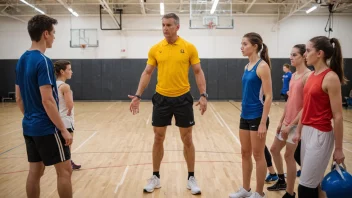Introduction
Golf is often seen as a social sport, where camaraderie and friendly competition flourish on the greens. However, many golfers find themselves playing alone at times. While solo golfing can be a serene and reflective experience, it also presents unique mental challenges. This article addresses common questions about overcoming the mental hurdles associated with golfing alone and offers strategies to enhance your experience.
What are the mental challenges of golfing alone?
Golfing alone can lead to various mental challenges, such as feelings of loneliness, lack of motivation, and increased pressure to perform. Without the presence of friends or fellow players, some golfers may struggle to maintain focus or find enjoyment in their game.
How can I stay motivated while golfing alone?
To stay motivated, set personal goals for each round. Focus on improving specific aspects of your game, such as your putting or driving accuracy. Additionally, consider keeping a journal to track your progress and reflect on your experiences, which can provide a sense of achievement.
Are there techniques to improve focus when playing alone?
Yes, several techniques can enhance your focus while playing solo. One effective method is implementing a pre-shot routine that helps you get into the right mindset before each stroke. Additionally, mindfulness practices, such as deep breathing exercises, can help center your thoughts and maintain concentration throughout your round.
How can I make solo golfing more enjoyable?
To enhance your enjoyment while golfing alone, consider bringing along music or an audiobook to listen to during your round. Alternatively, take the opportunity to explore different courses, which can provide new scenery and challenges. Lastly, try to savor the peacefulness of being on the course and appreciate the time spent outdoors.
What should I do if I feel lonely on the course?
If loneliness strikes while golfing alone, take a moment to connect with the experience rather than resist it. Use this time to reflect on your thoughts and enjoy the solitude. If you feel comfortable, consider striking up a conversation with other players you encounter; many golfers are open to socializing, even if just briefly.
Can solitary practice improve my game?
Absolutely! Solo practice can allow for concentrated improvement without distractions. Focus on specific skills, such as chipping or driving, and dedicate time to practice them thoroughly. The quieter environment may also help you better analyze your techniques and make necessary adjustments.
How do I handle performance pressure when alone?
Performance pressure can feel heightened when you're on your own. To manage this, remind yourself that the game is for your enjoyment. Set realistic expectations and focus on the process rather than the outcome. Emphasizing personal growth over scores can reduce pressure and enhance your experience.
What are some mental strategies for maintaining a positive mindset?
Maintaining a positive mindset can be achieved through several strategies. Practice positive self-talk, reminding yourself of your strengths and past successes. Additionally, embrace a growth mindset by viewing challenges as opportunities to learn rather than obstacles. This shift in perspective can lead to a more enjoyable solo golfing experience.
Final Thoughts
Golfing alone can present unique mental challenges, but it also offers opportunities for personal growth and reflection. By implementing strategies to enhance motivation, focus, and enjoyment, you can transform your solo rounds into valuable experiences. Embrace the journey of improvement while savoring the peace of the game.






